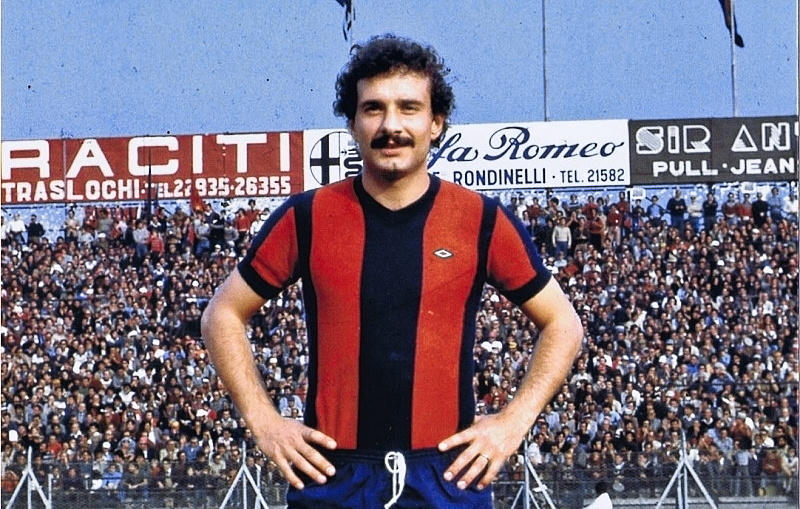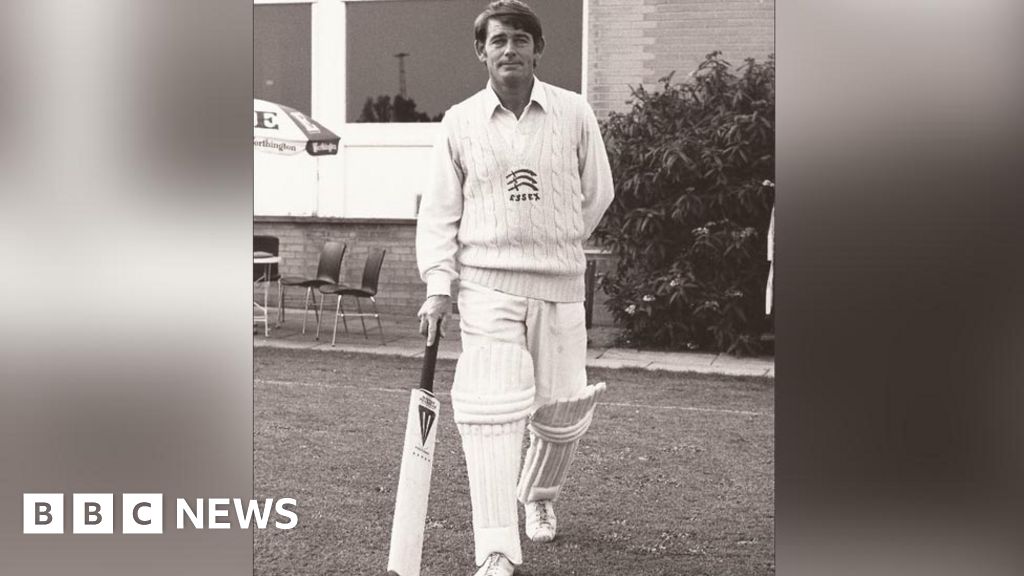The tragic legend of Erasmo Iacovone, the man who made Taranto dream
With the exception of Prato, whose numbers have been greatly inflated by immigration from the Far East during decades, there is only one name among the 23 most populous cities in Italy to have see never been linked to a Serie A follow you: Taranto.
Taranto is a city of contrasts. Located on the inland coast of the southern region of Puglia, it was founded as a Greek colony in the 8th century and has since flourished thanks to its fame as a city rich in ancient art and archaeological remains, not to mention the beauty of its crystal. - a clear sea, its mild climate all year round, the freshness of its fish and the abundance of products from the sun-drenched land that surrounds the urban center.
After World War II, however, a battle-torn nation needed a boost to achieve the so-called "Italian economic miracle" of the 1960s, and everyone had to do their part. For Taranto, such a part took the form of the Italsider steelworks inaugurated by the Head of State, Giuseppe Saragat, in 1965.
The largest of its kind in Europe, with a pipeline to renovate the country with Siberian gas, it ushered in a new era for the city. It was an era of state-of-the-art smelters, oil refineries, chemical plants, cement plants, and food processing plants that, despite the city's skyrocketing GDP, made the air a little heavier, l sea water a little hazier, the sun a little hazier and ultimately resulted, half a century later, in Taranto producing 92 percent of Italy's dioxin.
No other event in the city's long history has had such a social impact. Under a sky now half blue half gray, a new disenchanted and desperate humanity felt, more than ever, the need for something capable of bringing together the two souls of the city. Something to hold on to in case the essence of Taranto escapes through the rusty grating at the end of a drain discharging its effluent into the sea.
Tarento has always been a city passionate about its football team, even without major achievements to achieve. It has always been a question of identity coupled with the pride of coming together to represent the city in what was once known as Stadio Salinella – after the name of the neighborhood it graces with its presence. But there was something different in the 1977/78 season.
After eight solid campaigns in a row in Serie B, the Ionians have started their ninth in style. If in January Ascoli's record already had a foothold in the first division, Taranto was one of the main candidates to follow suit, edging the Bianconeri by a handful of points halfway through the season. p>
With the exception of a few additions in goalkeeper Željko Petrović, centre-back Stefano Dradi and inside striker Franco Panizza, the line-up was the same as the one that had comfortably dodged relegation the previous season, earning a solid ninth place on the table. The biggest difference was represented by Erasmo Iacovone, now at the peak of his footballing maturity.
In the Class of 1952, the mustachioed striker had joined the previous year from Mantua, scoring eight goals in 27 appearances in his first year at Puglia. Halfway through the 1977/78 campaign, he was already nine years old. He was by no means the one with good feet in front, especially compared to Franco Selvaggi, who would go on to win the World Cup in 1982, or Graziano Gori. He wasn't particularly tall either, standing just 1.74m tall, although his exceptional height had allowed him to head home each of the eight goals he had to his name in his first year with the reds and blue.
Initially, thrifty president Giovanni Fico was unconvinced to spend all that money on himself. It took assistant coach Tommaso De Pietri, who had worked with Iacovone at Carpi in 1973/74, to persuade him it was a bargain. Fico himself didn't remain skeptical for too long either, as Iacovone flew higher than any of Novara's centre-backs to score his first goal on his debut day in late October 1976.
And yet, the love Iacovone has received from City has never been just about scoring ability. He was admired by those who recognized themselves...


With the exception of Prato, whose numbers have been greatly inflated by immigration from the Far East during decades, there is only one name among the 23 most populous cities in Italy to have see never been linked to a Serie A follow you: Taranto.
Taranto is a city of contrasts. Located on the inland coast of the southern region of Puglia, it was founded as a Greek colony in the 8th century and has since flourished thanks to its fame as a city rich in ancient art and archaeological remains, not to mention the beauty of its crystal. - a clear sea, its mild climate all year round, the freshness of its fish and the abundance of products from the sun-drenched land that surrounds the urban center.
After World War II, however, a battle-torn nation needed a boost to achieve the so-called "Italian economic miracle" of the 1960s, and everyone had to do their part. For Taranto, such a part took the form of the Italsider steelworks inaugurated by the Head of State, Giuseppe Saragat, in 1965.
The largest of its kind in Europe, with a pipeline to renovate the country with Siberian gas, it ushered in a new era for the city. It was an era of state-of-the-art smelters, oil refineries, chemical plants, cement plants, and food processing plants that, despite the city's skyrocketing GDP, made the air a little heavier, l sea water a little hazier, the sun a little hazier and ultimately resulted, half a century later, in Taranto producing 92 percent of Italy's dioxin.
No other event in the city's long history has had such a social impact. Under a sky now half blue half gray, a new disenchanted and desperate humanity felt, more than ever, the need for something capable of bringing together the two souls of the city. Something to hold on to in case the essence of Taranto escapes through the rusty grating at the end of a drain discharging its effluent into the sea.
Tarento has always been a city passionate about its football team, even without major achievements to achieve. It has always been a question of identity coupled with the pride of coming together to represent the city in what was once known as Stadio Salinella – after the name of the neighborhood it graces with its presence. But there was something different in the 1977/78 season.
After eight solid campaigns in a row in Serie B, the Ionians have started their ninth in style. If in January Ascoli's record already had a foothold in the first division, Taranto was one of the main candidates to follow suit, edging the Bianconeri by a handful of points halfway through the season. p>
With the exception of a few additions in goalkeeper Željko Petrović, centre-back Stefano Dradi and inside striker Franco Panizza, the line-up was the same as the one that had comfortably dodged relegation the previous season, earning a solid ninth place on the table. The biggest difference was represented by Erasmo Iacovone, now at the peak of his footballing maturity.
In the Class of 1952, the mustachioed striker had joined the previous year from Mantua, scoring eight goals in 27 appearances in his first year at Puglia. Halfway through the 1977/78 campaign, he was already nine years old. He was by no means the one with good feet in front, especially compared to Franco Selvaggi, who would go on to win the World Cup in 1982, or Graziano Gori. He wasn't particularly tall either, standing just 1.74m tall, although his exceptional height had allowed him to head home each of the eight goals he had to his name in his first year with the reds and blue.
Initially, thrifty president Giovanni Fico was unconvinced to spend all that money on himself. It took assistant coach Tommaso De Pietri, who had worked with Iacovone at Carpi in 1973/74, to persuade him it was a bargain. Fico himself didn't remain skeptical for too long either, as Iacovone flew higher than any of Novara's centre-backs to score his first goal on his debut day in late October 1976.
And yet, the love Iacovone has received from City has never been just about scoring ability. He was admired by those who recognized themselves...
What's Your Reaction?














![Three of ID's top PR executives quit ad firm Powerhouse [EXCLUSIVE]](https://variety.com/wp-content/uploads/2023/02/ID-PR-Logo.jpg?#)







